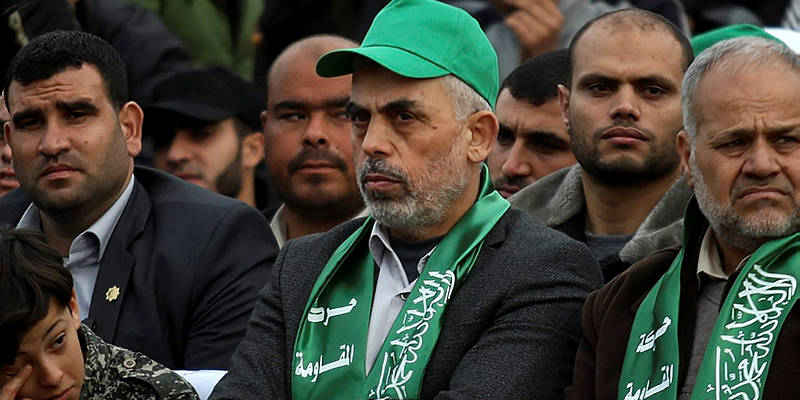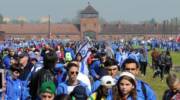“The conflict is intensifying between the Iranian camp and the Turkish-Qatari camp,” Palestinian officials told TPS.
By Baruch Yedid, TPS
Divisions between Hamas leaders within Gaza and abroad are becoming more intense as the Gaza terror group celebrates its 35th anniversary on Wednesday.
Palestinian sources tell the Tazpit Press Service that the Hamas leaders inside the Strip are in what is referred to as the “Qatari-Turkish camp” which is regarded as more moderate, as opposed to Hamas figures based abroad who are in the more radical “Iranian camp.”
Further, the Hamas leadership abroad is seen as interfering in the organizing of Gaza celebrations to control the political messaging.
Hamas is suffering from a budget freeze on the part of Iran. A source in Gaza told TPS, “It’s not only Hamas that is feeling the budget crisis now.” The official tells us from sources in the Islamic Jihad in Gaza that many members of the Islamic terror group have not received the salaries that come from Iran for at least two months.
Palestinian officials told TPS, “The conflict is intensifying between the Iranian camp, of which Ismail Haniyeh and Khaled Mashaal are members, and the Turkish-Qatari camp. And this affects Hamas’s policy on the issue of prisoners.”
TPS recently reported that the leadership abroad, encouraged by Iran, has been pressuring Yahya Sinwar, Hamas’s Gaza leader, to enter into another round of confrontation with Israel, but he refused after Gaza paid a high price for the May 2021 conflict.
Pre-empting Yahya Sinwar
Palestinian sources told TPS that the leadership abroad sent a message to Sinwar insisting that his anniversary speech must be approved in advance and warning him not to speak spontaneously.
Hamas leaders outside Gaza are furious with Sinwar, who, after an 11-day Israel-Gaza conflict in 2021, cryptically told journalists, “Remember the number 1111.”
It was initially believed that 1111 referred to the number of missiles Hamas would fire at Israel in a future conflict or the number of Palestinian prisoners Hamas would demand in a prisoner swap.
In the end, Sinwar clarified that he was referring to the anniversary of the death of long-time Palestinian leader Yasser Arafat, who died on November 11. Fatah was unhappy, but Palestinian sources told TPS that Hamas leaders abroad were even more upset.
“Hamas abroad believe that Sinwar lost his leadership and damaged the prestige of the entire leadership when he spoke out of excitement,” a Palestinian source explained to TPS.
In a move to pre-empt Sinwar, senior Hamas leader Ismail Haniyeh gave an address on Monday in Beirut stressing that “Hamas completed the Shalit deal and the release of prisoners is its top priority.”
“The sword of Jerusalem has not and will not be sheathed,” Haniyeh insisted.
Hamas experts in the Palestinian Authority told TPS, “the conflict is intensifying between the ‘military camp” in Hamas, which currently controls it, and the ‘ideological camp’ of the Muslim Brotherhood, which was ousted from the leadership.”
Hamas was founded in 1987 as a branch of the Muslim Brotherhood, a Sunni Muslim organization based in Egypt with branches in the Mideast, Asia, Africa, Europe and North America.























